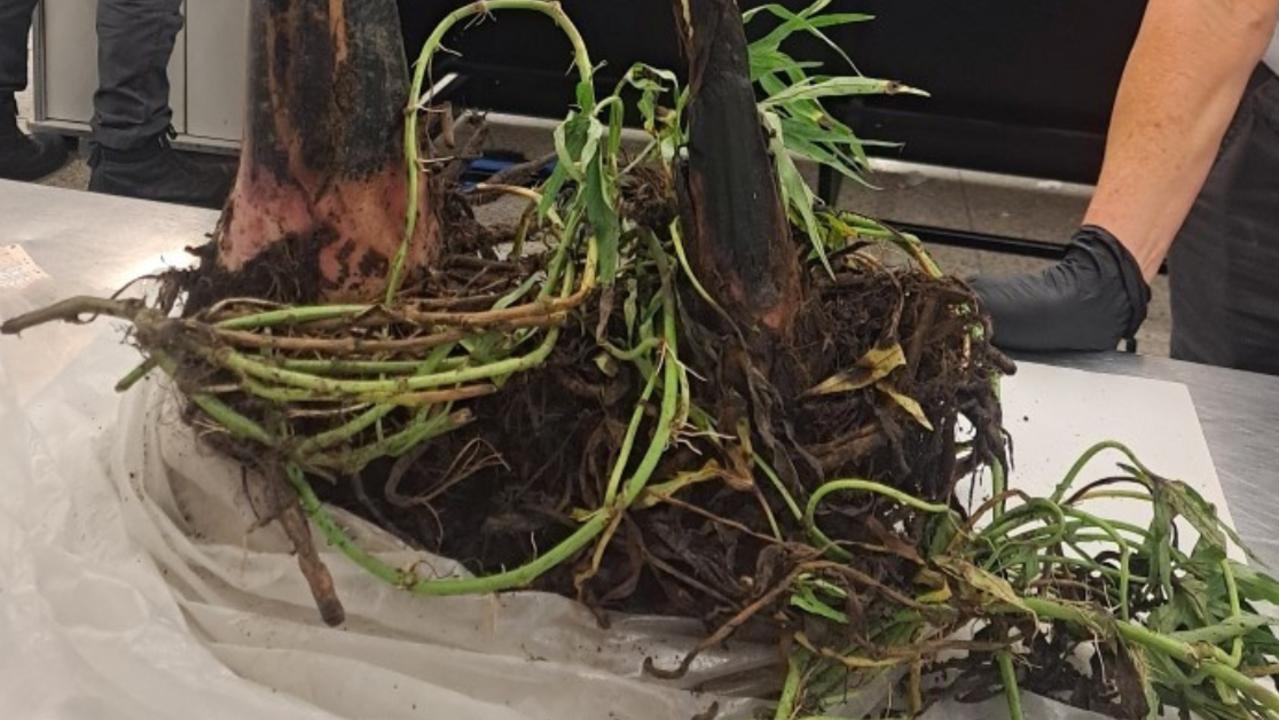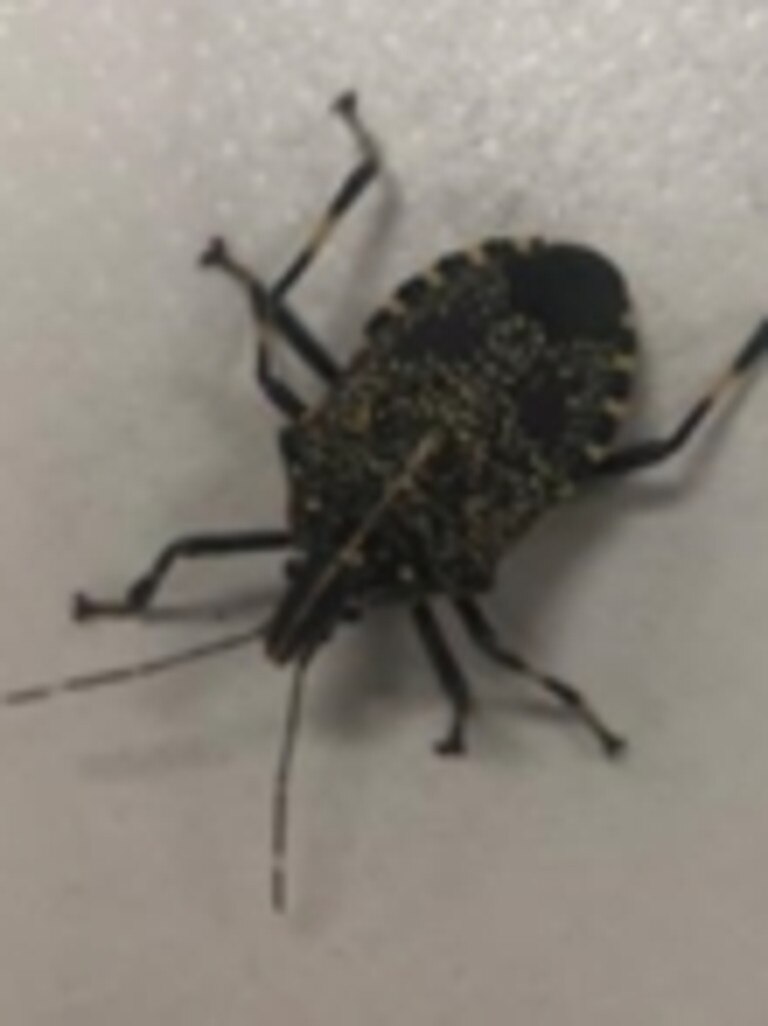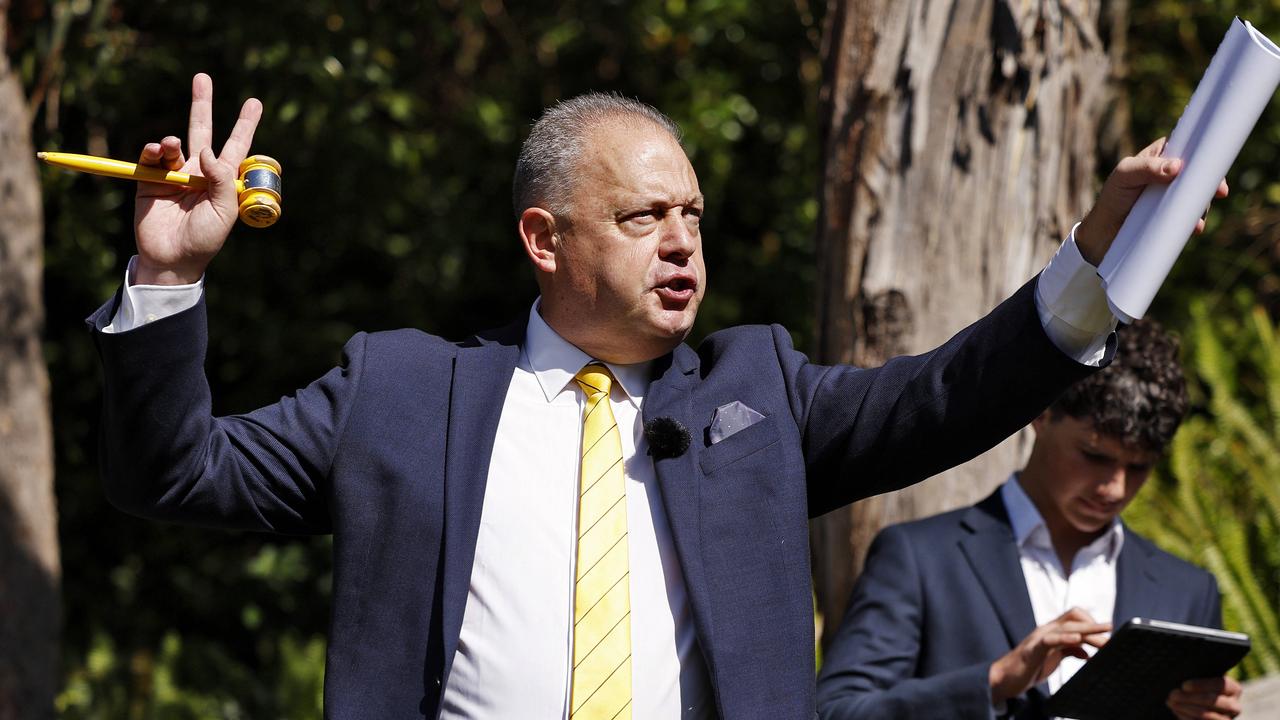Live cane toad among nearly 400,000 items seized at airports in 2023
Every day more than 1000 items are seized at Australian airports that could threaten the country’s biosecurity – from birds nests and dirt to live cane toads and water from the Ganges.

Business
Don't miss out on the headlines from Business. Followed categories will be added to My News.
A live toad, a slug, birds’ nests and holy water from the Ganges river were among almost 400,000 items seized from travellers at Australia’s international airports last year.
Other bizarre detections included live stink bugs in a horse saddle, three boxes of dirt and bulbs, a frog and a whole banana tree complete with root system and soil.
The huge number of risk items stopped at the border by Department of Agriculture, Forestry and Fisheries biosecurity officers, amounted to over 1000 a day across international airports.
One in three items or almost 129,000 was seized at Sydney Airport including a live cane toad, Melbourne Airport had 109,000 detections, Perth over 61,000 and Brisbane more than 58,000 including tarragon plants and a live slug.

Thousands of items were also stopped at Adelaide, Darwin, Gold Coast, Cairns and Canberra Airports, with beef, rice, pork, seeds, herbs, spices and chillies the most common products seized.
As a result of the detections, 5595 visitors received fines from $626 to $6260 up from 3109 the previous year.
The department also noted that between October 2019 and December 2023, 22 people had their visas cancelled because of biosecurity breaches.
Of the 393,000 security risk items stopped at borders out of 7.5 million passengers screened, detector dogs uncovered more than 32,000 from 809,000 passengers.
Agriculture Minister Murray Watt said the sheer volume of biosecurity risk material coming through air and sea ports showed how vigilant the government needed to be in protecting Australian borders from exotic pests and diseases.
“Our economy, agricultural sector and our way of life is too important to be impeded by an incursion from a foreign pest or disease,” said Senator Watt.
To that end, $1bn had been invested in biosecurity management over the next four years including an additional $267m each year after that, he added.
“Biosecurity is everybody’s responsibility, that’s why our model includes increased revenue from importers ($390m), the government ($350m) and producers ($50m),” said Senator Watt.
“We’ve also doubled the amount of detector dogs and handlers at airports.”

A department spokesman said keeping Australia free of exotic pests and diseases was one of the most important tasks as a nation.
He said the biosecurity system safeguarded the environment, industries, plant and human health, and underpinned the productivity and sustainability of the $78bn agricultural industry.
“Those who fail to declare risk items on their incoming passenger card risk significant financial penalties and in some cases prosecution,” said the spokesman.
As well as airports, biosecurity officers targeted seaports, conducting nearly 17,000 inspections at 107 sites.
The department also carried out biosecurity checks of close to 300 cruise ships, and 940 non-commercial vessels arriving in Australia.
These uncovered over 200 stink bugs, 168 Asian gypsy moths, and 256 burnt pine longicorn beetles.
The spokesman stressed that it was unlawful not to declare food, plant or other potential biosecurity risk items on paperwork when entering the country.
“Australia has the enviable position of being free from many unwanted pests and diseases and we want to stay that way,” he said.
“If exotic pests and diseases such as foot-and-mouth disease, African swine fever, Xylella and Khapra beetle get a foot hold in Australia, they could devastate our $46bn cropping industry and $32bn livestock industry.”
More Coverage
Originally published as Live cane toad among nearly 400,000 items seized at airports in 2023








